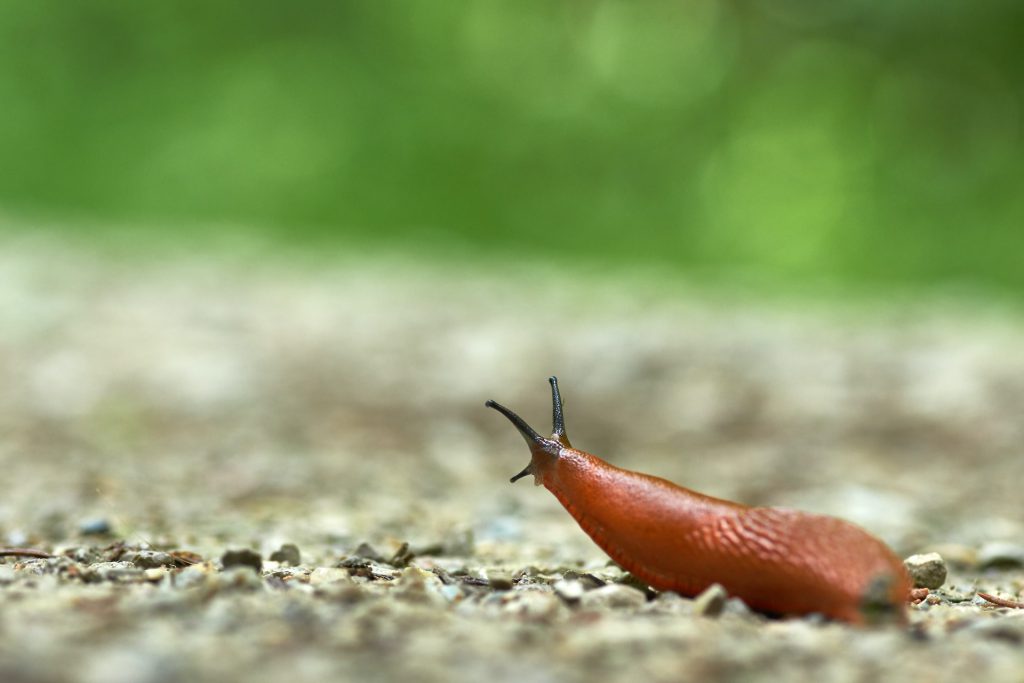Slugs, while beneficial in many natural ecosystems, can become a gardener’s nightmare, especially after a rainy July month like the one we just experienced. These slimy creatures are back in full force, munching away at our beloved plants. However, the good news is that you don’t need to resort to harmful chemicals to manage them. Here’s a guide on how to naturally prevent and control slug infestations in your garden.

Understanding the Role of Slugs
In nature, slugs play a vital role as decomposers of organic matter. They help in the dispersion of fungi and contribute to the ecosystem’s balance. However, when they invade our gardens and vegetable patches, they can cause significant damage, munching on leaves, fruits, and young plants.
Preventive Measures
1. Attract Natural Predators
One of the best ways to manage slugs is to encourage their natural predators to visit your garden. Creatures like ground beetles, moles, hedgehogs, and birds love to feast on slugs. By providing shelters like birdhouses or piles of logs and stones, you can create a welcoming environment for these predators.
2. Plant Repellent Vegetation
Certain plants act as natural repellents for slugs. Consider planting mustard, rue, or marigolds around your garden. These plants act as natural barriers, deterring slugs from entering the area.
3. Maintain Garden Cleanliness
Decomposing vegetation attracts slugs. Ensure you remove any rotting plants from your garden. The same goes for compost; it’s best to place your compost pile as far away from your garden as possible.
4. Use Desiccating Materials
Slugs thrive in moist environments. By surrounding your plants with desiccating materials like wood ash, sawdust, pine needles, or finely crushed eggshells, you can create a barrier. These materials dry out the slug’s mucus, preventing them from moving forward.
5. Watering Techniques
Instead of frequent light watering, opt for less frequent but deep watering. Target the water directly at the base of the plants, avoiding creating a widespread damp area that slugs love.
Dealing with Existing Slug Infestations
1. Create False Shelters
Slugs are nocturnal creatures that seek dark, damp shelters during the day. By placing overturned pots filled with vegetable waste or rye bran in your garden, you can attract them. Come morning, simply collect and release the slugs far away from your garden.
2. Beer Traps
Slugs are strangely attracted to beer. Fill a container with beer in the evening, and by morning, you’ll find it filled with slugs. To ensure beneficial insects or hedgehogs don’t get trapped, place a perforated lid over the container.
3. Natural Molluscicides
Fern-based liquid fertilizers are potent molluscicides, as is a rhubarb decoction. However, be warned: the former can emit a rather strong odor!
Conclusion
While slugs play a crucial role in our ecosystem, they can be a nuisance in gardens. By understanding their habits and employing natural preventive and control measures, you can maintain a healthy, slug-free garden. Remember, the key is to work with nature, not against it. By fostering a balanced ecosystem in your garden, you can enjoy the beauty of your plants without the damage caused by these slimy invaders.

 Open Immovlan
Open Immovlan